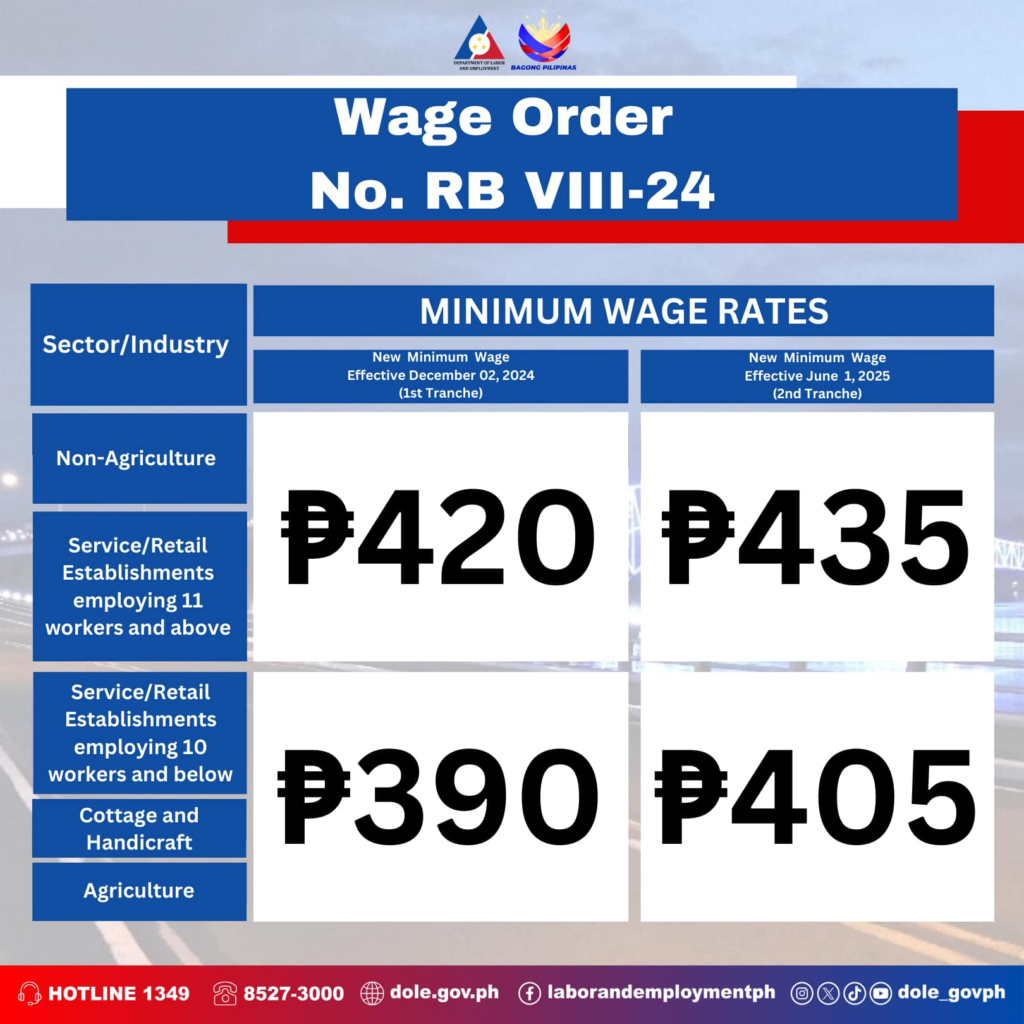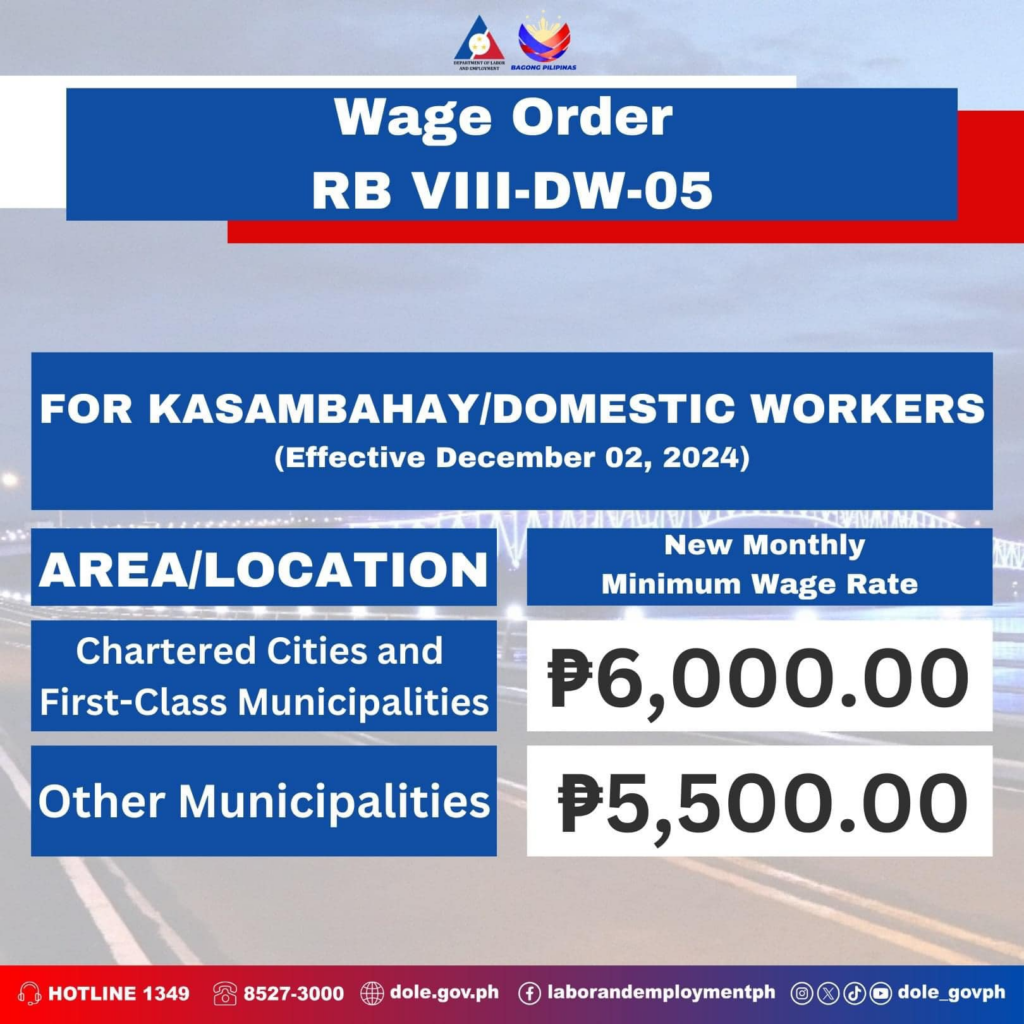Good News! You’re going to need a bigger coffee mug to go with your new wage hike.

Minimum wage earners in Eastern Visayas are set to enjoy a higher take-home pay starting December 2, thanks to a recently approved P30 increase in the daily minimum wage by the Regional Tripartite Wages and Productivity Board (RTWPB). This increase is to be implemented in two stages by June 2025.
WAGE INCREASE DETAILS

Upon full implementation, the daily minimum wage for private sector workers will range from P405 to P435, depending on the sector. The first tranche, a P15 increase will take effect on December 2, 2024. The second tranche, another P15, will follow on June 1, 2025.
- Non-agriculture workers and service/retail establishments with 11 or more employees, with a current P405 will rise to P420 in the first tranche, and then P435 in the second tranche.
- Agriculture, cottage/handicraft, and service/retail establishments with 10 or fewer employees with a current P375 wage will increase to P390 in December 2024, and P405 in June 2025.
- Meanwhile, household workers or kasambahay, will receive an additional P500 in their monthly pay, raising their salaries from P5,500 to P6,000.
This adjustment reflects a 7% increase in wages, which will also result in a 10% rise in wage-related benefits like the 13th month pay, service incentive leave, and social security contributions. Over 126,000 minimum wage earners are expected to directly benefit, while about 175,600 salaried workers earning slightly above minimum wage may see indirect benefits.


CONTEXT AND CRITICISM
The wage order, issued on November 5, 2024, comes a year after the last adjustment and follows President Ferdinand Marcos Jr.’s directive for wage boards to review regional minimum wages. However, labor leaders continue to criticize the regional wage-setting system, advocating instead for a legislated nationwide wage hike. Proposals in Congress range from P100 to P750, with the Senate recently approving the P100 increase.
This wage adjustment aims to balance the needs of workers and their families with employers’ capacity to pay, as determined by RTWPB deliberations involving government, labor, and employer representatives.



Comments are closed.